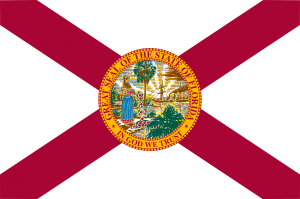 Good news! Two bills in the Florida legislature that would have facilitated challenges to instructional materials were allowed to die at the end of the legislative session earlier this month. The bills had been pushed by some of the same parents who last summer waged a futile campaign against four books found in Collier County school libraries.
Good news! Two bills in the Florida legislature that would have facilitated challenges to instructional materials were allowed to die at the end of the legislative session earlier this month. The bills had been pushed by some of the same parents who last summer waged a futile campaign against four books found in Collier County school libraries.
House Bill 899 and Senate Bill 1018 would have made it easier for any taxpayer–not just parents–to challenge instructional materials that allegedly fail to provide a balanced viewpoint on hot-button issues such as evolution, climate change, and LGBT rights and relationships. The bills were introduced in December at the behest of the Florida Citizens’ Alliance and Better Collier County Public Schools. Both groups, along with another called Parents ROCK, were previously involved in a public dispute over books they claimed were included on Collier County Public Schools’ recommended summer reading lists. In fact, the lists to which they objected were found on GoodReads.com and were compiled by users unconnected to Collier County Public Schools. The CCPS website did initially include a link to a GoodReads-curated page of Middle School Book Lists, but the parent groups apparently failed to understand that the school district had no control over the content found there. After receiving complaints, CCPS removed the GoodReads link and replaced it with a list compiled by the Florida Department of Education.
Nevertheless, some parents had already cross-checked lists from GoodReads against CCPS library collections and demanded the removal of four books from school libraries: Beloved and The Bluest Eye by Toni Morrison, Dreaming in Cuban by Cristina Garcia, and Killing Mr. Griffin by Lois Duncan. (One book called Beautiful Bastard, which they found on a GoodReads list and excerpted for provocative effect in at least one blog post, was never in any CCPS libraries or classrooms at all.) Despite much social media posturing and allegations that CCPS was defending “the use of highly explicit and pornographic materials,” however, the parent groups never availed themselves of the formal challenge procedure outlined in district policy.
In light of that history, observers were justifiably concerned about the can of worms that could be opened by the two bills, which would have amended a law that went into effect last year regarding adoption of instructional materials. Although the furor began over library books, those would not have been affected as they are not included in the state’s legal definition of “instructional materials”; novels and other books assigned in class certainly would have, however.
Among other provisions, the amendments would have allowed any taxpayer — not just parents of enrolled students — to challenge instructional materials used in local school districts. Additionally, whereas the existing law says that school boards make the final decision on such challenges, the new bills would have given taxpayers the right to appeal the board’s decision to a district court. A spokesperson for the Florida Citizens’ Alliance told Daily News that he didn’t think many challenges would actually advance that far, but “the provision might encourage textbook companies to stick to the law’s guidelines in terms of providing historically accurate, noninflammatory and objective material.”
The problem, however, is that the lobbying groups’ definitions of what is historically accurate and noninflammatory appear somewhat biased. During the library book furor last summer FCA objected to the presence of books with LGBTQ themes, and the National Center for Science Education noted that the same group has also criticized history textbooks for covering evolution and climate change. Another amendment proposed in the two bills would have allowed school districts to adopt education standards “equivalent to or better than” state standards but failed to define how the relative quality of standards would be measured; NCSE points out that FCA’s website approvingly links to a curriculum that uses a creationist textbook for high school biology.
Like NCSE and Florida Citizens for Science, we are relieved that the two bills did not advance in this year’s legislative session, but also suspect that we probably haven’t seen the last of them. Next year we’ll be ready and waiting!
Help support CBLDF’s important First Amendment work in 2015 by visiting the Rewards Zone, making a donation, or becoming a member of CBLDF!
Contributing Editor Maren Williams is a reference librarian who enjoys free speech and rescue dogs.